What’s On Your Bookshelf?
Crack Open a Book With These Educators
By Kenna Caprio
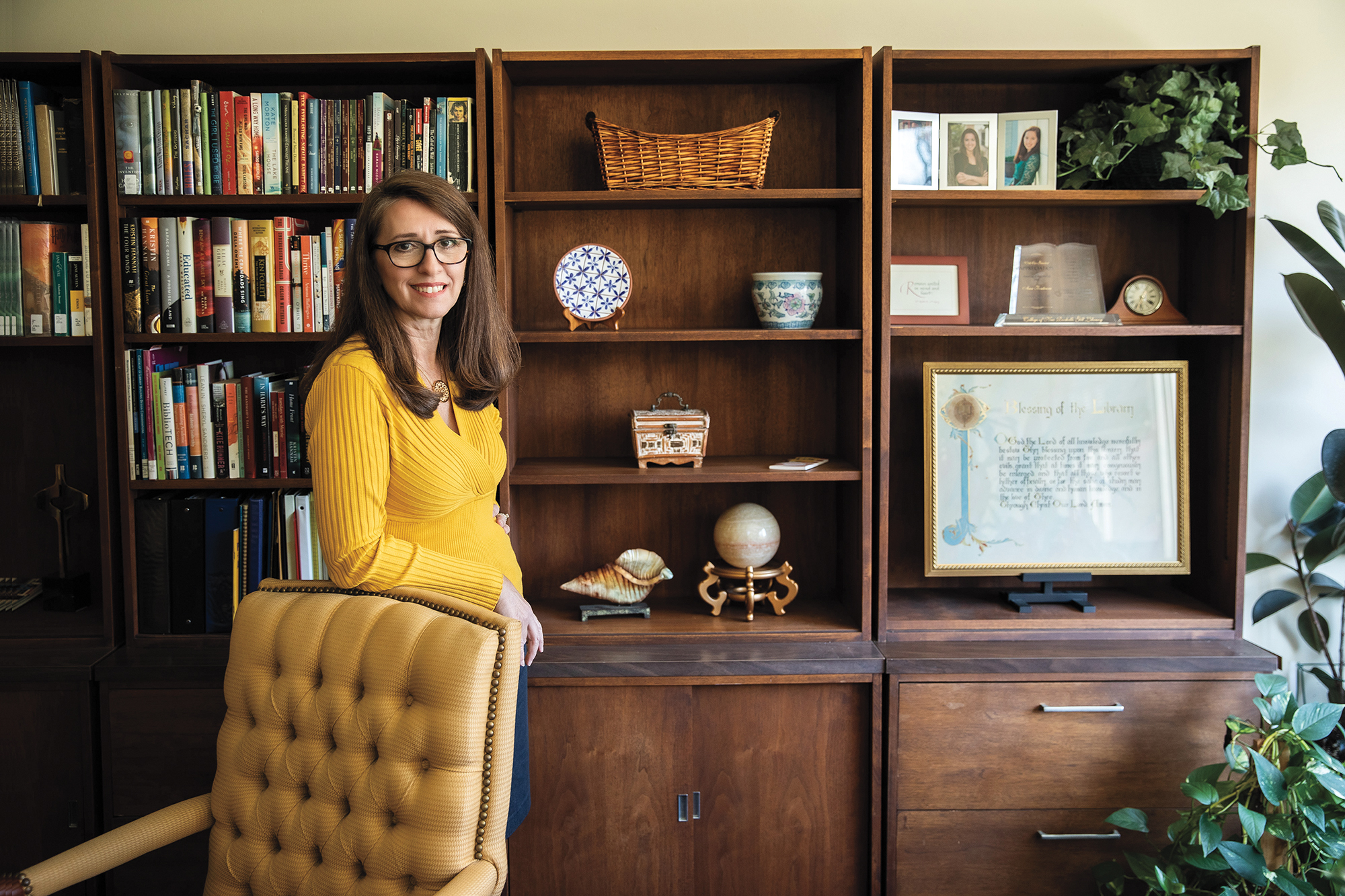
Ana Fontoura in her office. (Photo: Bill Cardoni)
Ana Fontoura
University Librarian
Ana Fontoura, University Librarian, grew up in Portugal, the youngest of seven children. There wasn’t much discretionary money to be had, so she borrowed books or bought them second-hand. “Books became a way for me to dream and to role play, to pretend and to be exposed to different worlds.” Now, it’s the impact that books have on her students that’s most important to her. “Students often come to us feeling defeated and frustrated because they don’t understand how to go about researching a topic. Librarians offer the support needed to clear that haze. Students find that papers are easier to write, concepts easier to learn and grades improve when they work with librarians!”
Seashell and Plates
“The decorative seashell and ceramics are from Portugal. I look at them and think of growing up by the sea in a town north of Lisbon. Thinking of the ocean, the food, the people and the countryside of my homeland relaxes me.”
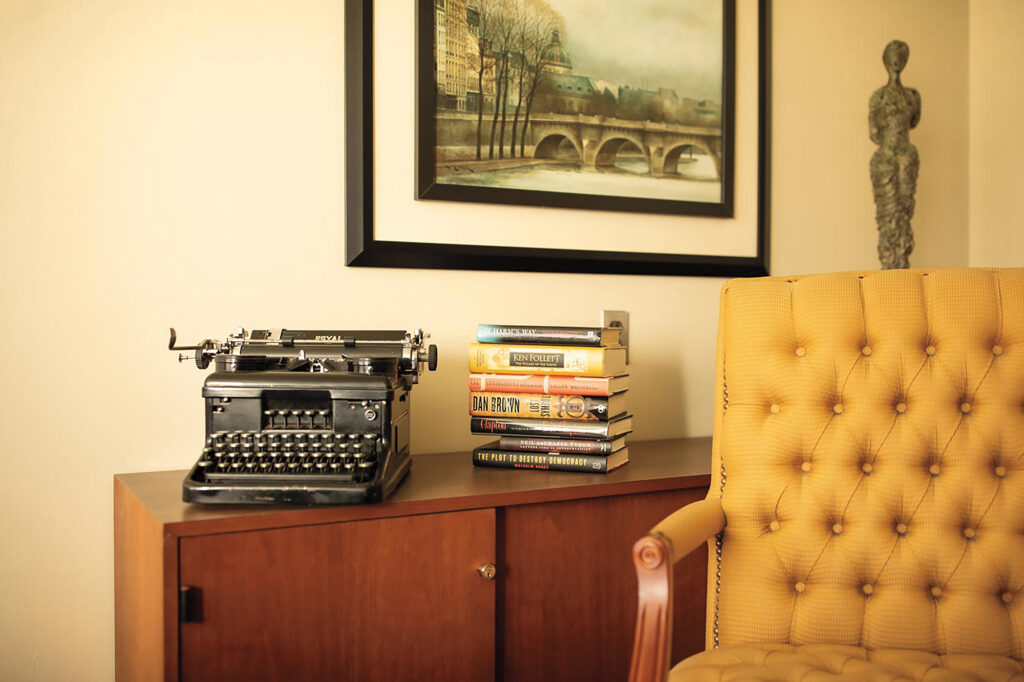
(Photo: Bill Cardoni)
Typewriter
“This is an antique typewriter that I found tucked away in the attic of my home. Although I don’t use it, it does still work, and it reminds me of a similar one that I used when I learned to type in high school. Those early years in the United States were challenging as I learned to speak the language. But with typing, I felt like I was on the same playing field as the other students.”
Children’s Books
“I love children’s books and young adult books. I have my kids to thank for that. Some of my favorite memories are of reading to them when they were little. They would always beg for just one more chapter.”
Calligraphy
“I have a very old, framed blessing written in calligraphy by one of the nuns of the Ursuline Sisters at The College of New Rochelle (CNR), specifically for a library, and a framed quote by St. Angela Merici, both of which remind me that if we remain united, we can accomplish anything.” Fontoura worked at CNR — a Catholic college that closed in 2019 — for 34 years.
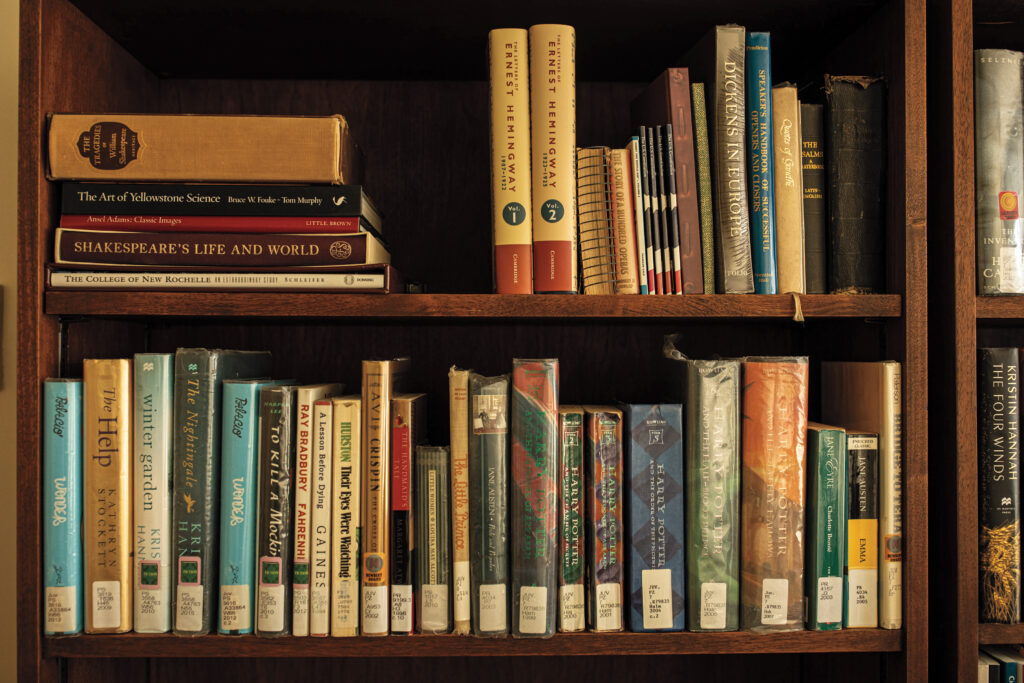
(Photo: Bill Cardoni)
Cover Art
“I love the cover of the anniversary edition of The Wonderful Wizard of Oz by L. Frank Baum, which has frayed pages and beautiful art. The Invention of Hugo Cabret by Brian Selznick stands out on my bookshelf because of how the cover art wraps around to the spine.” Other literary gems on her shelves include To Kill a Mockingbird, The Nightingale and Their Eyes Were Watching God.
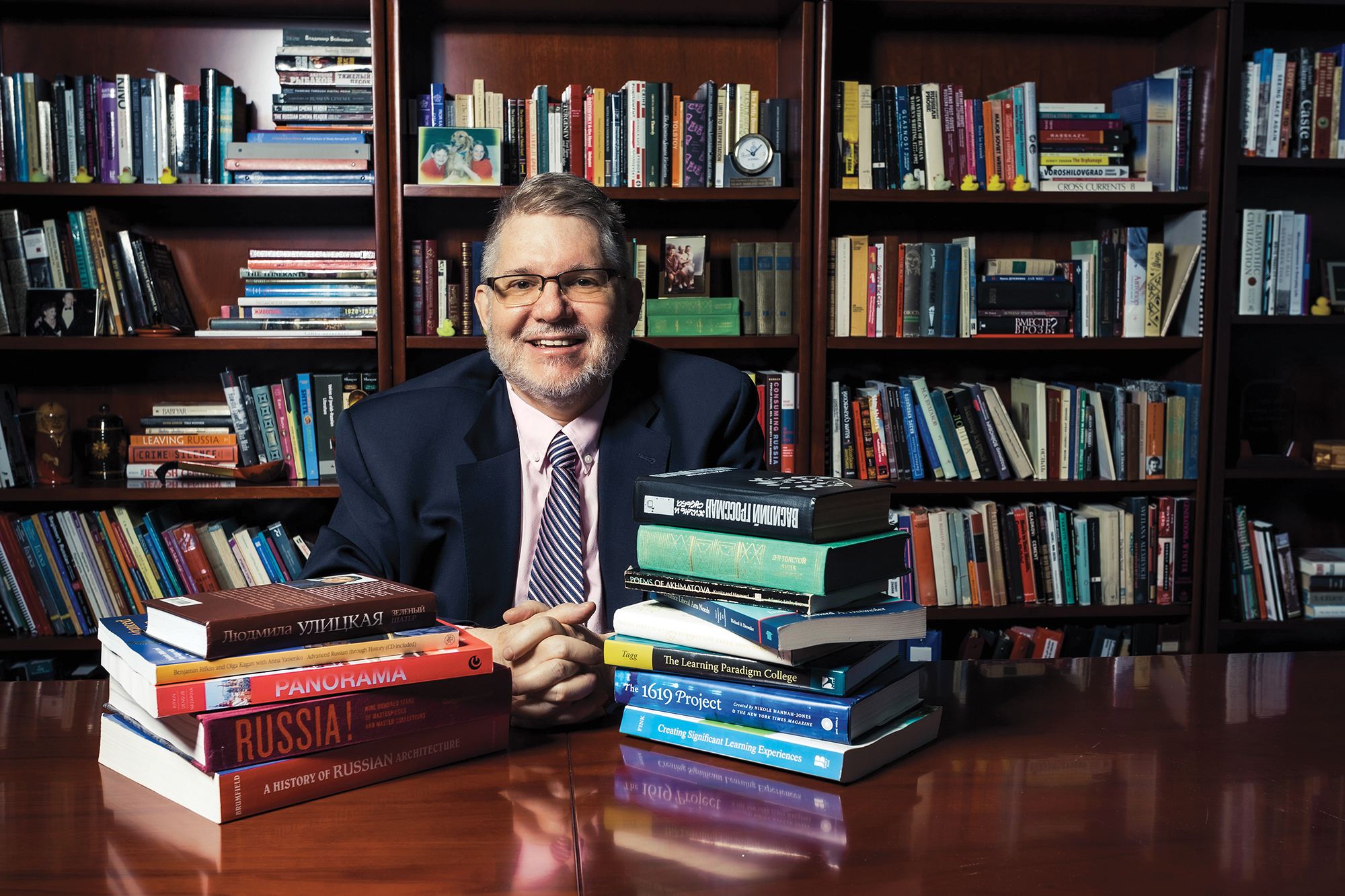
Ben Rifkin in his office at FDU’s Florham Campus. (Photo: Bill Cardoni)
Benjamin Rifkin
Interim University Provost and Senior Vice President of Academic Affairs
Benjamin Rifkin, interim University Provost, senior vice president of academic affairs and professor of Russian, decided to challenge himself to learn a new language in college — he loved his French classes, so why not try more? To his delight, he found a great Russian professor and ended up changing his major. Forty years later, he’s still enamored. “The vowel sounds in Russian are broad and open, and the consonant sounds are divided into two phonetic categories we call ‘hard’ and ‘soft,’ which are very beautiful. The grammatical structure of the language creates a lot of rhymes, so Russian poetry is like music to me.” Here’s how Rifkin went from studying and teaching Russian to dean of arts and sciences. Spoiler alert! Books are heavily involved.
Anna Karenina
“Anna Karenina is truly a classic of world literature because Leo Tolstoy tells stories of characters struggling to find their own truths. Readers from times and places very distant from 19th-century Russian society — whether geographically, politically, culturally or spiritually — find common ground with one or more of these characters.”
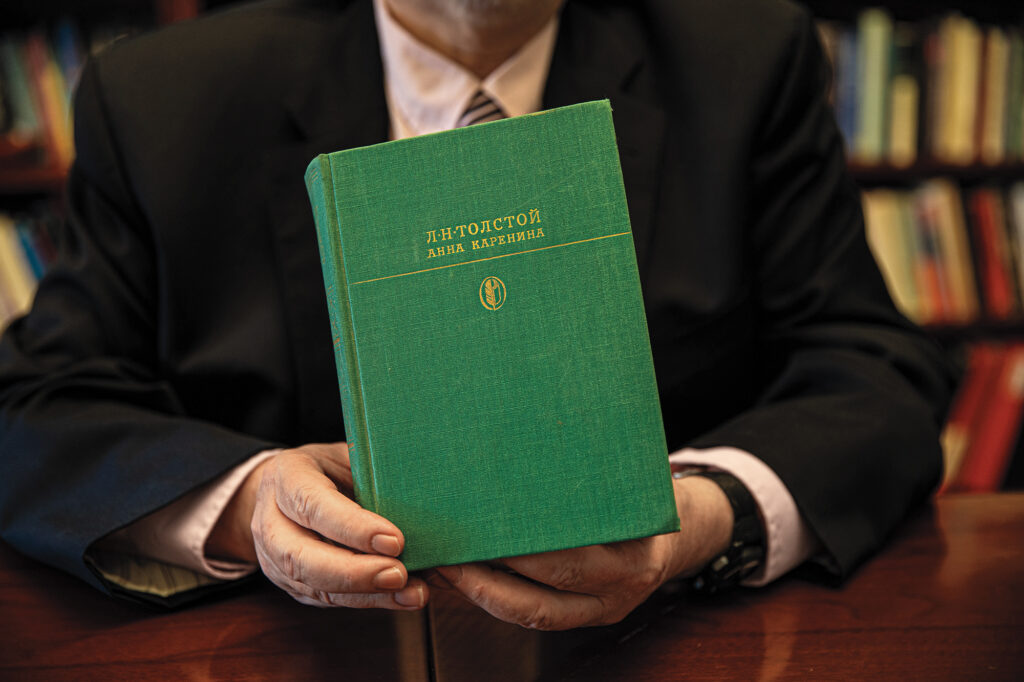
Ben Rifkin holds up a Russian edition of Anna Karenina by Leo Tolstoy. (Photo: Bill Cardoni)
Learning Outcomes
In graduate school, as Rifkin taught his first Russian courses, he noticed learning discrepancies among his students. “I was intrigued by the question of how to promote good learning outcomes in a complex situation, in which students have different instructors for different courses of a single academic program.” Rifkin has continued exploring the “larger picture of undergraduate outcomes” throughout his career, leading him to multiple leadership positions.
Book Collection
Among his favorite books: Anna Karenina, The 1619 Project by Nikole Hannah-Jones, Poems of Akhmatova by Anna Akhmatova, Crime and Punishment by Fyodor Dostoevsky and more. His collection includes Russian literature, in Russian and in translation; historical, political and cultural nonfiction; books on leadership and higher education; Russian textbooks; and books on linguistics, applied linguistics and volumes on language and film pedagogy.
Ducks in a Row
“In each of my offices [one at the Florham Campus and one at the Metropolitan Campus],
I have about 20 very little rubber ducks. When I work with people in my office, I can scramble up the ducks as I pose a problem to solve or a challenge to overcome. As we bring the parts of the solution together into a plan, we gradually put the ducks in a row. Having the very tangible image of the ducks in a row on the table is a symbol of our success in solving the given problem.”
Treasure Trove
Besides books, visitors to Rifkin’s offices will find photographs of his wife and children; Russian nesting dolls; Russian wooden spoons; a samovar, traditionally used to boil water for tea; and original artwork on his bookshelves and walls.
Russian Scholarship
“To be honest, I never once gave a thought to how American professors of German in the 1930s might have felt until recently, but now I think about them a lot. I am a fluent speaker of Russian and a person who loves and teaches Russian literature and film, and I condemn Russia’s invasion of Ukraine.”